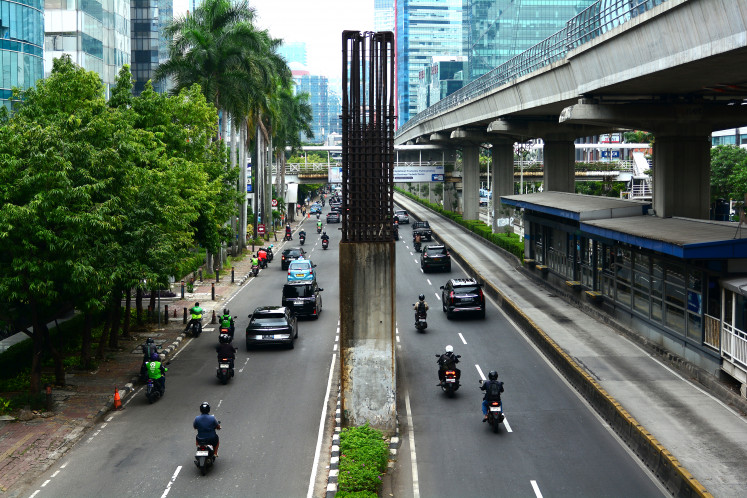Popular Reads
Top Results
Can't find what you're looking for?
View all search resultsPopular Reads
Top Results
Can't find what you're looking for?
View all search resultsA Decade of SFMP 2.0: How APRIL Leads Through Environmental Responsibility
Change text size
Gift Premium Articles
to Anyone
I
n Indonesia, the conversation about sustainability carries real weight—especially when it concerns the country’s vast rainforests, often called the “Emerald of the Equator.”
For APRIL Group, a pulp and paper producer based in Riau, these forests are more than just the setting for operations. They represent a shared responsibility: to protect nature, empower communities, and sustain the resources on which business depends.
With stewardship over extensive landscapes, APRIL has built its strategy around the belief that environmental responsibility and economic growth can go hand in hand. Backed by transparent governance, the company’s commitments to nature, climate, and people have continued to evolve over the past decade.
On 3 June 2015, APRIL took a decisive step by committing to eliminate deforestation from its supply chain. This announcement formed the centrepiece of its Sustainable Forest Management Policy 2.0 (SFMP 2.0)—a policy shaped with input from a diverse group of stakeholders, from business associations to NGOs, and supported at the highest levels of the company.
SFMP 2.0 became the guiding framework for the company’s production forestry, conservation and restoration initiatives, and community development programs. Ten years later, it remains a foundation for APRIL’s business diversification and sustainable growth, ensuring that all fibre products are sourced and produced responsibly in Indonesia.
Balancing production and protection
A central premise of the policy was that if production takes place from the land, there must be a corresponding effort to give back to the land—environmentally, socially, and economically—in an integrated way.
At the heart of SFMP 2.0 is APRIL’s Production-Protection approach: a model where production forests help safeguard natural ecosystems and fund conservation and restoration projects. This ensures that economic returns are balanced with environmental and social outcomes.
One of the policy’s most ambitious commitments is the 1-for-1 conservation pledge—preserving one hectare of natural forest for every hectare of plantation. This establishes conservation areas equal in size to APRIL’s plantations.
To date, APRIL has achieved 77 percent of this pledge, with a conservation footprint of 465,886 hectares alongside 605,781 hectares of plantation. This balance allows the company’s business goals and environmental ambitions to progress in step with one another.
Empowering supply chain
For APRIL’s no-deforestation commitment to have real impact, forest conversion must be absent from its entire supply chain. All suppliers are required to adopt the policy’s deforestation commitments, sign agreements to uphold them, and undergo independent monitoring and assurance.
Every delivery of wood to APRIL’s mill is subject to strict source verification, ensuring no timber comes from land cleared after the June 2015 cut-off date. Compliance is overseen through SFMP 2.0’s independent assurance framework, led by the Stakeholder Advisory Committee (SAC), a panel of national and international experts. The SAC reviews annual assurance reports and investigation findings, which are made public to maintain transparency.
A Foundation for APRIL2030
SFMP 2.0 was never intended to be the final chapter in APRIL’s sustainability journey. In 2020, the company launched APRIL2030, a comprehensive set of measurable targets for climate, nature, and people to be achieved by the end of the decade.
“SFMP 2.0 remains as relevant now as it was a decade ago,” said Lucita Jasmin, APRIL’s Director of Sustainability and External Affairs. “But we will not stand still. We continue to build on it as we raise our ambitions with APRIL2030, adding more specific, deeper commitments on climate, nature, and people.”
With a decade of progress behind it, APRIL’s approach continues to prove that sustainable business is not only possible but essential—uniting environmental stewardship with long-term economic success.











